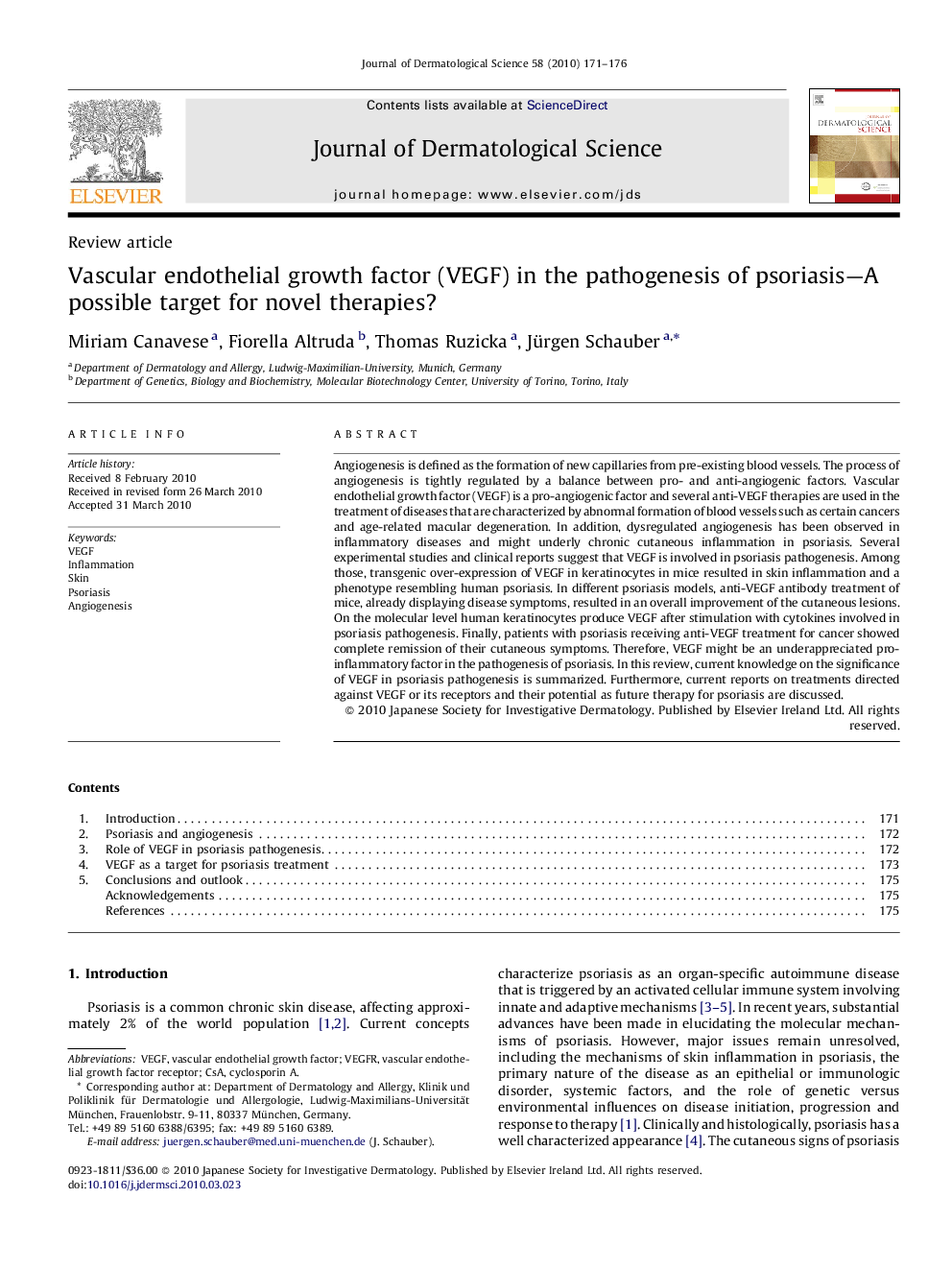| Article ID | Journal | Published Year | Pages | File Type |
|---|---|---|---|---|
| 3213860 | Journal of Dermatological Science | 2010 | 6 Pages |
Angiogenesis is defined as the formation of new capillaries from pre-existing blood vessels. The process of angiogenesis is tightly regulated by a balance between pro- and anti-angiogenic factors. Vascular endothelial growth factor (VEGF) is a pro-angiogenic factor and several anti-VEGF therapies are used in the treatment of diseases that are characterized by abnormal formation of blood vessels such as certain cancers and age-related macular degeneration. In addition, dysregulated angiogenesis has been observed in inflammatory diseases and might underly chronic cutaneous inflammation in psoriasis. Several experimental studies and clinical reports suggest that VEGF is involved in psoriasis pathogenesis. Among those, transgenic over-expression of VEGF in keratinocytes in mice resulted in skin inflammation and a phenotype resembling human psoriasis. In different psoriasis models, anti-VEGF antibody treatment of mice, already displaying disease symptoms, resulted in an overall improvement of the cutaneous lesions. On the molecular level human keratinocytes produce VEGF after stimulation with cytokines involved in psoriasis pathogenesis. Finally, patients with psoriasis receiving anti-VEGF treatment for cancer showed complete remission of their cutaneous symptoms. Therefore, VEGF might be an underappreciated pro-inflammatory factor in the pathogenesis of psoriasis. In this review, current knowledge on the significance of VEGF in psoriasis pathogenesis is summarized. Furthermore, current reports on treatments directed against VEGF or its receptors and their potential as future therapy for psoriasis are discussed.
